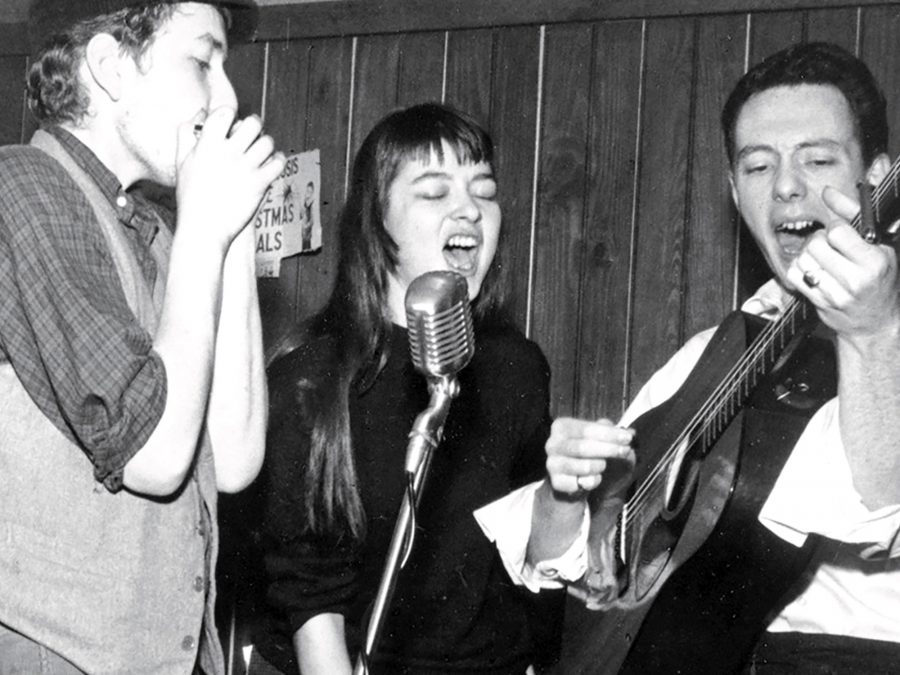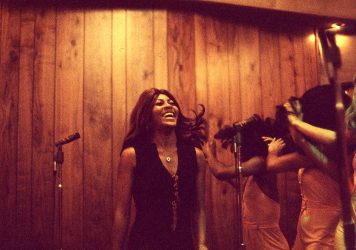
SoundCloud rappers and a forgotten folk singer took centre stage at this year’s CPH:DOX.
One symptom of the COVID-19 pandemic has been the feeling that we’re caught in an endless loop. The repetitive nature of lockdown, and the ability of music to restore us, was a recurring theme at this year’s CPH:DOX, none more so than in David Wexler’s Disintegration Loops.
Back in September 2001, while digitising some old analogue loops of audio, American composer William Basinski discovered that these tapes were gradually decaying as they passed through his recorder. The subsequent soundscape would become ‘The Disintegration Loops’, a haunting composition of mournful horns that became an elegy for the September 11 attacks. Drawing comparisons between the post-9/11 landscape and New York in 2020, Wexler’s film opens with images of a deserted Manhattan as Basinski’s music conveys the repetitiveness of life in lockdown.
Composed of Zoom conversations in which Basinski sits in his speedos and discusses his creative process, Wexler’s film is more of a long-form interview than a biopic. You could argue that a documentary about such an avant-garde composer deserves a more imaginative approach, but Basinski is a flamboyant interviewee, and the film’s discursive style drifts from anecdotes about growing up in rural Texas, to how the process of repetition can become a form of composition.

In the 20 years since ‘The Disintegration Loops’ were first released, the music industry has changed dramatically, with the rise of streaming platforms forcing record companies to adjust to this new social media-dominated era. Two films at CPH:DOX explored this phenomenon by taking a closer look at the SoundCloud rap movement.
For anyone who remembers buying CD singles, Justin Staple’s American Rapstar is perhaps the best introduction to this DIY subgenre of hip hop. Playing out like a comprehensive longread article about this new generation of musicians, complete with plenty of hand-wringing about the facial tattoos and pharmaceutical drug use that has become synonymous with the genre, the film expands into a heartfelt investigation into the psychological impact of social media fame and the mental health issues many of these young artists struggle with.
Adopting a more impressionistic approach, Marnie Ellen Hertzler’s Crestone follows a collective of SoundCloud rappers who moved to the Colorado desert to grow weed and make music. “This movie is about the end of the world” she declares at the start of the film. Not that you’d guess by the actions of her fuzzy-headed subjects, who continue to tattoo each other and make baloney sandwiches as emergency alerts on the television warn of an encroaching wildfire. The line separating fact and fiction blurs in a cloud of sand and smoke, but Hertzler’s film is really just a hangout movie about collaboration and friendship attuned to the feelings of displacement and indifference that preoccupy many youngsters.

Richard Peete and Robert Yapkowitz’s Karen Dalton: In My Own Time also focuses on an artist who refused to play by the rules. Raised in dust-bowl Oklahoma, Dalton possessed the earthy beauty of a Dorothea Lange portrait and a weary voice that saw her compared with Billie Holiday. Her many identities – ruthlessly focused artist, ambivalent wife, drug addict – all come through in the vulnerability of her voice, but despite being one of the most influential figures to emerge from the Greenwich Village folk scene she only released two studio albums before dying of an AIDS-related illness at 55.
Part biography, part autopsy, the lasting tragedy of Peete and Yapkowitz’s film is not that Dalton was ill equipped to handle fame, but that her greatness wasn’t recognised until it was too late. Some people turn to music to forget their troubles, others to better understand the world around them. From an ambient composition about death and decay, to the tragic demise of a blues folk genius, these four films demonstrated that while music may not have all the answers, it might be the one thing to help us through the pandemic.
Published 4 May 2021

By Leila Latif
Tina Turner has the final say on her tumultuous life and glittering career in this all-access documentary.

By Eve Watling
Seek out these great musical portraits, featuring David Bowie, Lil Wayne and Leonard Cohen.

This illuminating documentary profiles extraordinary women musicians who shaped electronic sound.